10 July 2023
Renewable Energy as a Path to Resilience
Read the full survey resultsSME Perspectives on the Energy Crisis
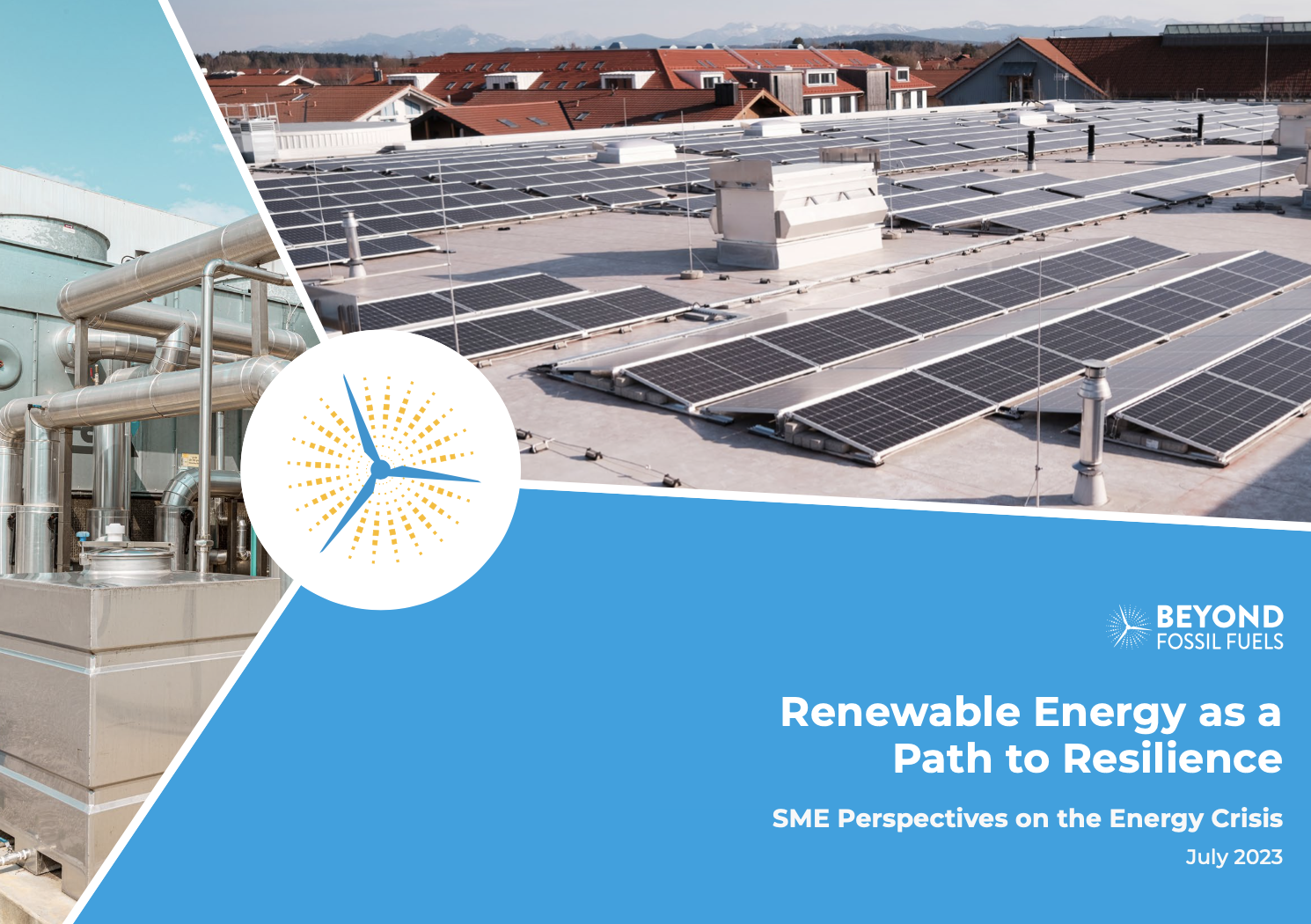
Small and medium-sized enterprises across Europe have been hit hard by the fossil fuel energy crisis. They know renewables and greater efficiency are their best options to cut bills, build resilience, and improve competitiveness, and they’re keen to take big steps to transition to them.
That’s what polling conducted in the Czech Republic, Germany, Greece, Italy, Netherlands, and Poland, shows.
However, while desire to move to renewable energy is high among SMEs, slow national deployment and low levels of support for renewable and energy efficiency solutions are holding them back, and in some cases: threatening their future.
Despite their energy bills growing and revenues dropping, SMEs have protected jobs for everyday Europeans through multiple crises. They now need support to access clean energy and efficiency measures to protect them from ongoing energy price volatility dependence on fossil fuel guarantees.
Key Findings
Average results over six-countries
Recommendations
National results
Czech Republic
More than two-thirds of (70%) SMEs in the Czech Republic think high energy costs are making their business less profitable, and three-quarters (75%) blame high energy costs for increasing the prices of their goods and services. While only 40% of SMEs surveyed blame their country’s fossil fuel dependency for increasing energy costs, half say investing in local renewable energy projects such as solar and wind is the best way to support them through the energy crisis. 75% and 79% of SMEs respectively would install, or consider installing, solar panels and using smart energy efficiency measures if incentives were put in place and administrative barriers lifted.
ECM System Solutions
The energy transition in Central Eastern Europe often comes bottom up, straight from the people, not from the big, mostly state owned energy companies. The people care most about their own pockets, and they’re driving the change from fossil fuels to renewables.
Martin Krupa was once mayor of Mikolajice, a small municipality in north eastern Czech Republic. He realised renewables could significantly lower local utility costs and spur development, so he set up ECM System Solutions, a company dealing with measuring, managing, and monitoring renewable energy sources such as solar panels, battery systems, electric car chargers, and intelligent lighting.
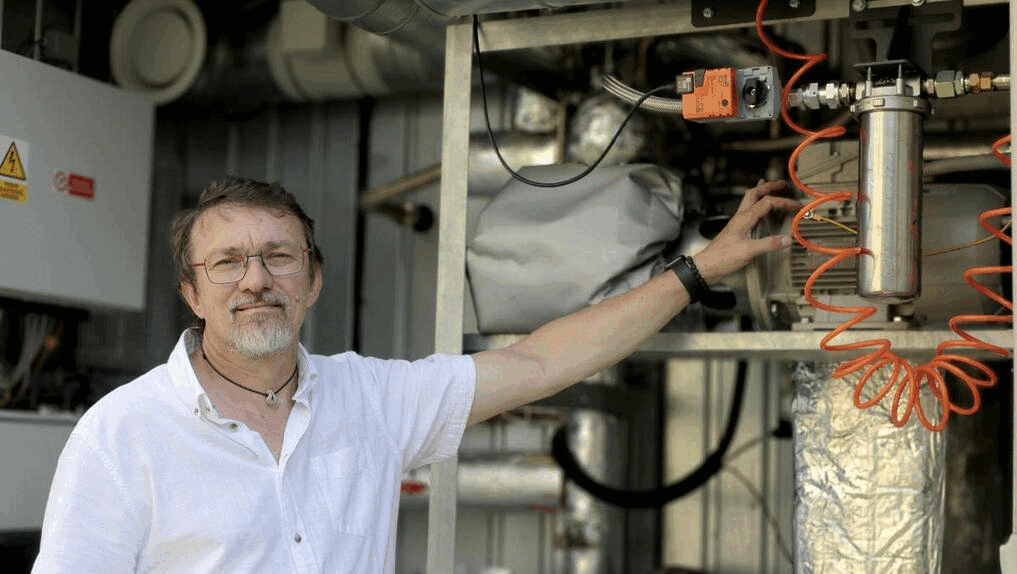
Photo © Rafal Tomecki, www.rafaltomecki.pl Featured in the picture: ECM System Solutions CEO, Martin Krupa
“What we do for our clients is a dynamic management of energy sources […] I recommend that they map their buildings and use their own sources, because for the next three to five years it’s going to be hard to predict the market and forecast the prices until things stabilise. The more sources they will have, the more certainty they will have. They will reach energy independence through a mix of photovoltaics, solar thermal panels, cogeneration units, and energy management systems”. Martin Krupa, CEO of ECM System Solutions.
Italy
Three-quarters (77%) of SMEs surveyed in Italy state that their business has had to increase prices because of high energy costs – 10 points above the six-country average. 66% also think high energy costs are making their business less profitable. More than two-thirds would use renewables and energy efficiency solutions if incentives are put in place and red tape removed.
Santangiolina
Agriculture cooperative Santangiolina launched in 1961, with the collection and distribution of milk produced by farmers in Lombardy, Northern Italy. The business evolved throughout the years with the production of local cheeses, including Grana Padano, one of the most iconic products of northern Italy.
Santangiolina has been able to seize the opportunities of a rapidly evolving market by adapting itself. In 2012, it analysed its carbon footprint as a starting point for a journey towards sustainability. It invested in new equipment to recover heat during the milk processing phases, halving its energy use during production.
Savings on electricity and gas consumption have allowed Santangiolina to face the recent energy crisis with a competitive advantage. It continues to pursue more benefits of sustainability, through the production of energy from photovoltaic panels and better management of biogas produced by the treatment of milk whey.
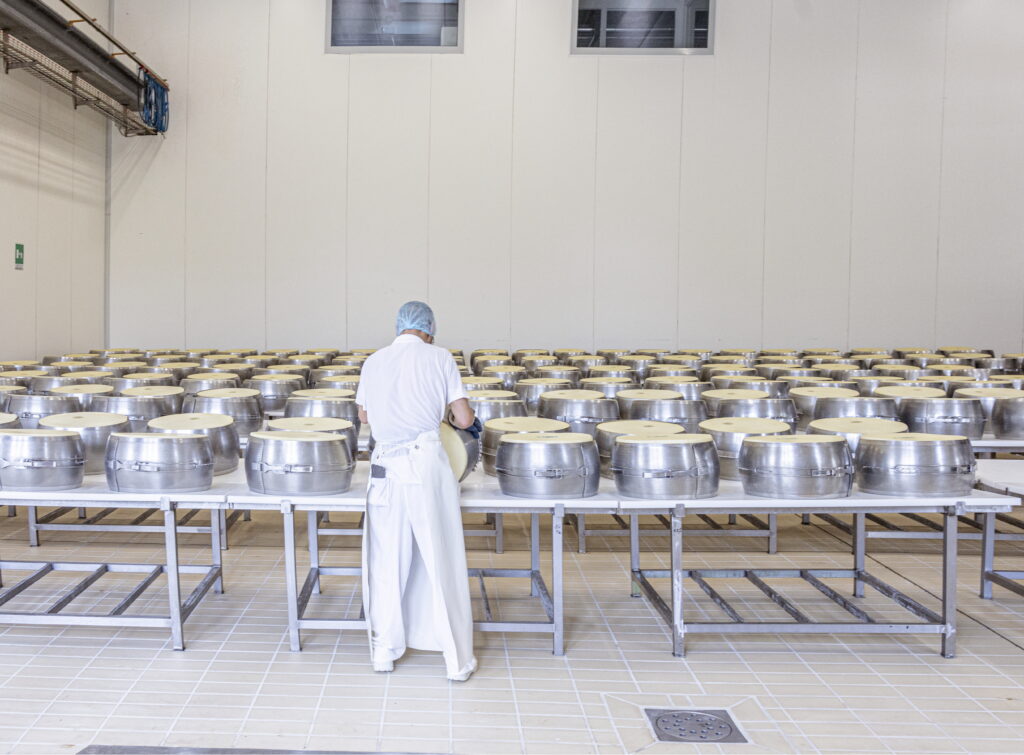
Photo © Alberto Bernasconi
Germany
Almost half of SMEs (49%) in Germany think high energy costs are making their business less profitable, and just over half blame high energy costs for increasing the prices of their goods and services (52%). Compared to the average, fewer SMEs in Germany (23%) report reducing staffing levels in response to high energy prices.
Bergzeit
In the foothills of upper Bavaria, outdoor clothing company Bergzeit has built a reputation for environmental responsibility. It’s one of five European outdoor retailers to sign a climate commitment in alignment with the Paris Agreement, and has embraced renewable energy and energy efficiency measures across its operations to dramatically reduce its energy bills and carbon footprint.
The centrepiece of Bergzeit’s green energy revolution is a whopping 1,370 panel solar installation on the 6,000 square metre roof of its warehouse. The setup produces 550,000 kilowatt hours of certified green electricity annually: enough to meet Bergzeit’s daily operational requirements, as well as power 150 households for a year. The €320,000 investment in the system returned an immediate €12,000 in energy bill savings in the three months after the solar roof was installed, and with prices rising, the company expects to recoup the entire investment faster than the anticipated seven-year payback period.
“It’s just a central conviction of ours that in the future all energy needs to be generated from renewable resources. Our original intention was to create a self-sufficient energy community in our immediate area so that electricity that is generated locally could be efficiently transferred over short distances, helping increase self-sufficiency. Unfortunately, regulation in Germany does not allow for this at the moment, so we were really happy when EWS agreed to go into partnership with us, and help us realise at least part of our vision. If you want to survive as a modern company, you can’t afford not to invest in energy savings”, Holger Cecco-Stark, Head of Projects and Corporate Social Responsibility.
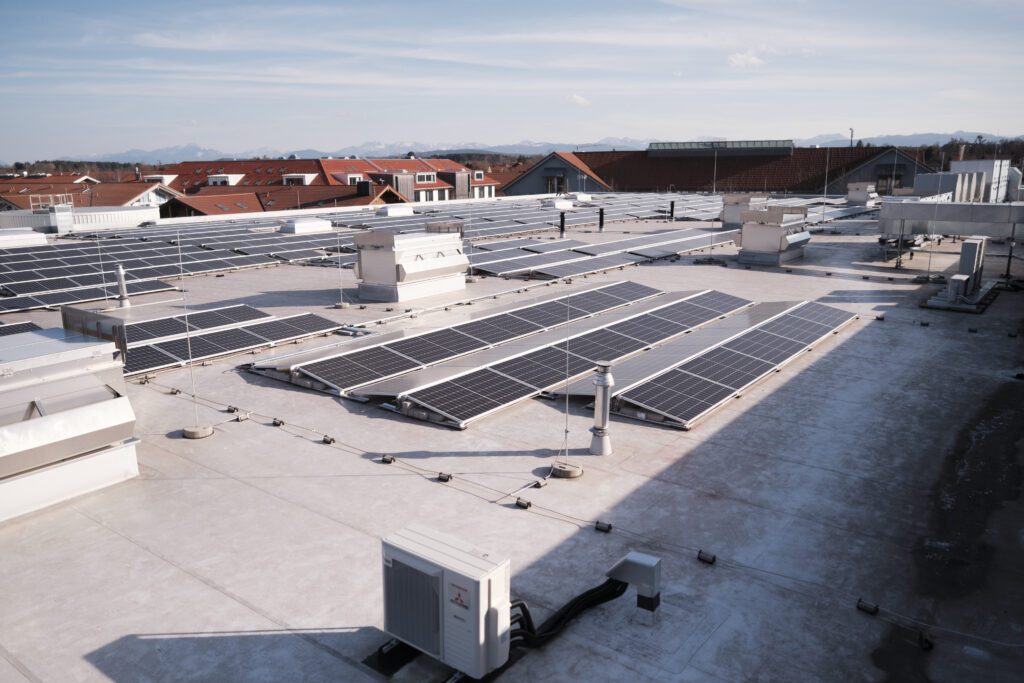
Photo: © Bergzeit GmbH
Greece
More than three-quarters of SMEs in Greece say that high energy costs are making their business less profitable (77% – 10% above the average across the six countries surveyed) and blame high energy costs (66%) for forcing them to increase their goods and services prices.
Netherlands
While SMEs in the Netherlands reported similarly high perception (62%) of increased energy costs making their businesses less profitable, and 59% saying they had to raise the price of their goods and services, few reported high energy costs affecting staffing decisions.
The ChocolateMakers
In the heart of Amsterdam’s bustling cocoa port, The ChocolateMakers have built an innovative company from the power of the sun and wind. Cocoa is shipped 4,143 nautical miles from the Dominican Republic to their factory dock, aboard the Tres Hombres – a beautifully restored 32-metre brigantine three-mast ship dating back to 1943.
A transparent solar canopy blankets the factory roof, providing 100% of their power, with excess fed back into the grid. Residual heat from the chocolate chamber is also used to efficiently warm the entire space, allowing them to save an estimate 35,000kg of CO2 annually in total – equivalent to the emissions of seven households.
“We innovate on all fronts. We look beyond fair trade or organic: environmentally friendly transport, a zero-waste production process and nature conservation are also part of it. We believe in a holistic approach. In 2014 we were already named Amsterdam ‘s most sustainable SME, five years later we’re proud to open our factory, with a fully transparent roof of solar panels, so that we can provide for our own energy needs”. Rodney Nikkels, Co-Founder of The ChocolateMakers
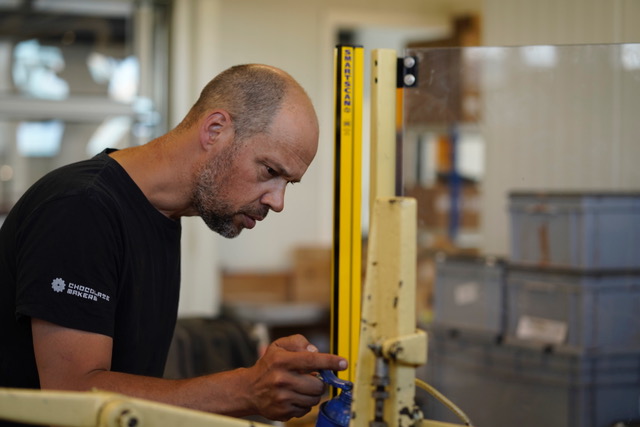
Photo © Chocolatemakers
Poland
More than two-thirds of SMEs in Poland think high energy costs are making their business less profitable (68%), and they blame high energy costs for increasing the prices of their goods and services (71%). Almost half report they have had to reduce staff levels because of high energy costs, well above the 33% average over the six countries surveyed.
The green industrial park inspiring the transformation of Poland’s coal heartland
Situated in Upper Silesia, Poland’s thriving industrial heartland and the EU’s largest remaining coal mining region, is Euro-Centrum, a forward-thinking industry hub, strategically positioned to capitalise on the region’s industrial capacity and skilled workforce.
Our solar panels provide anything from 20% to 100% of the site’s power depending on the weather,” said Stanisław Grygierczyk, Science and Environment Coordinator at Euro-Centrum.
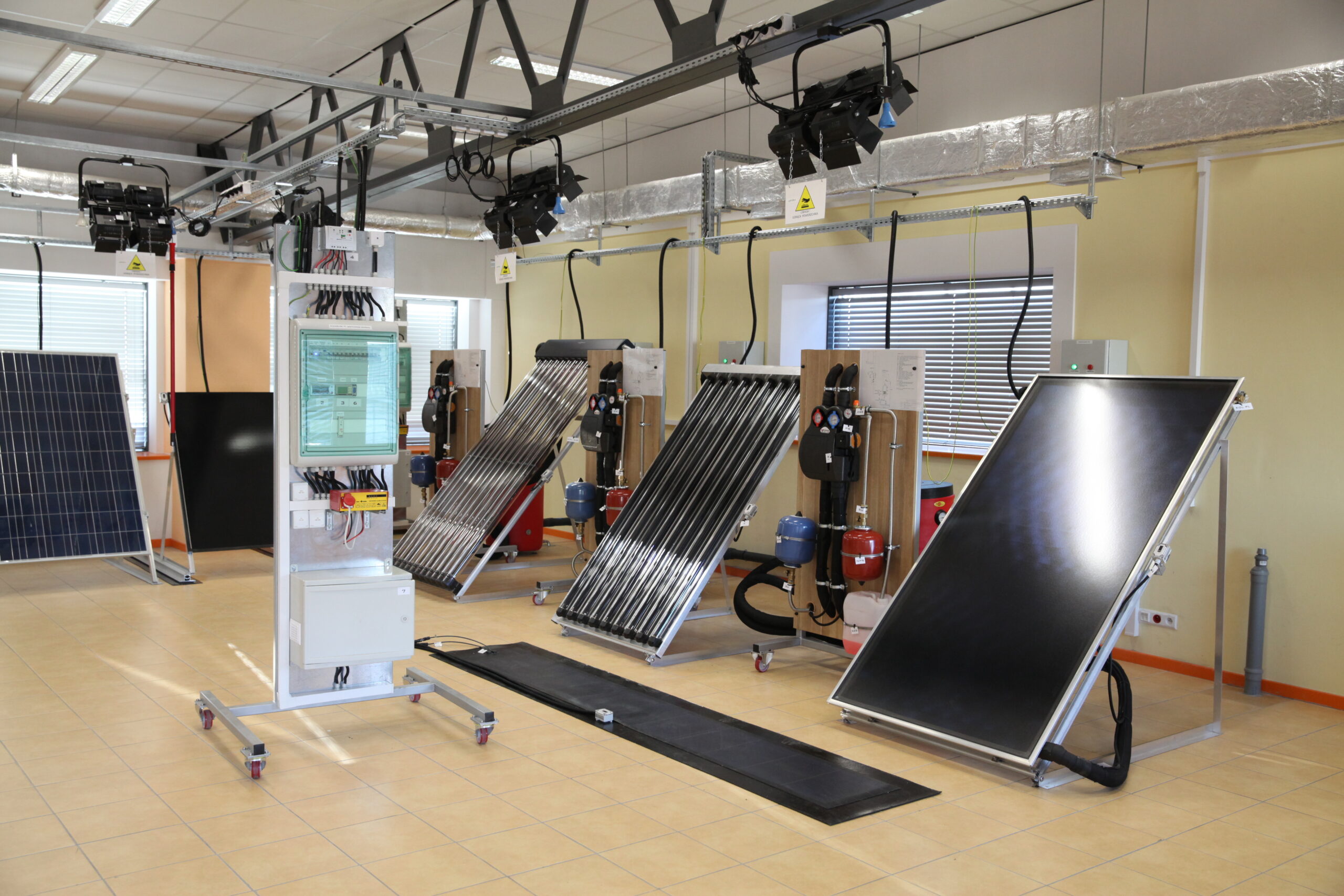
Photo © Euro-Centrum Katowice
